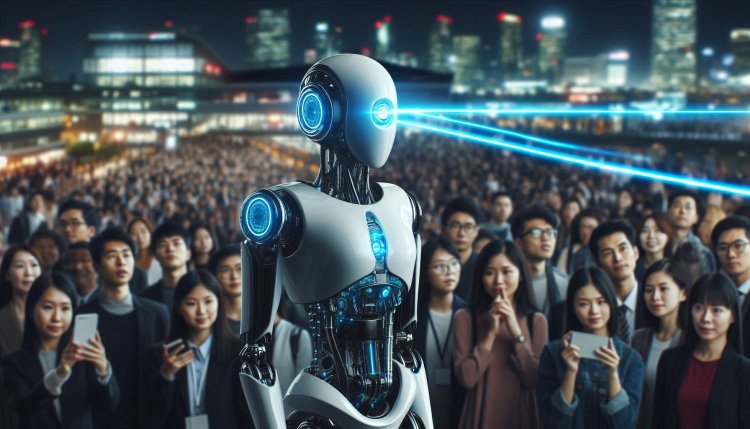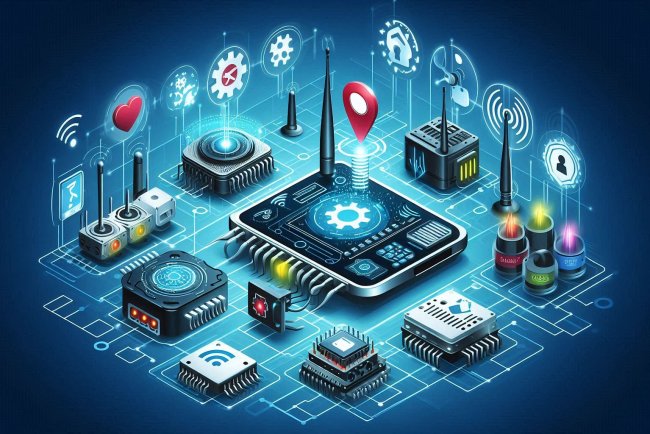Edge AI for Industrial IoT (IIoT)
Discover how Edge AI is revolutionizing Industrial IoT (IIoT) by enabling real-time data analysis and decision-making at the network edge.

Edge AI for Industrial IoT (IIoT)
Industrial Internet of Things (IIoT) is revolutionizing the way industries operate by connecting devices and machines to gather data and optimize processes. One of the key technologies driving this transformation is Edge AI.
What is Edge AI?
Edge AI refers to the deployment of artificial intelligence algorithms on edge devices, such as industrial sensors, gateways, or controllers, enabling real-time data processing and decision-making at the edge of the network. This approach minimizes latency, reduces bandwidth usage, enhances data privacy, and improves overall system efficiency.
Benefits of Edge AI for IIoT
- Real-time Decision Making: By processing data locally on edge devices, AI algorithms can make instant decisions without relying on cloud connectivity, ensuring quick response times critical for industrial applications.
- Bandwidth Efficiency: Edge AI filters and processes data at the source, sending only relevant information to the cloud, reducing bandwidth usage and associated costs.
- Data Privacy and Security: Keeping sensitive data within the edge device enhances security and privacy, as critical information doesn't need to be transmitted over the network.
- Scalability and Flexibility: Edge AI allows for distributed intelligence across the network, enabling scalability as more devices are added and providing flexibility in adapting to changing environments.
- Reliability and Resilience: Edge AI systems can continue to operate even in the absence of network connectivity, ensuring uninterrupted functionality in industrial settings.
Applications of Edge AI in IIoT
Edge AI is being increasingly adopted across various industrial sectors to address specific challenges and improve operational efficiency. Some common applications include:
- Predictive Maintenance: By analyzing sensor data at the edge, AI algorithms can predict equipment failures before they occur, enabling proactive maintenance and reducing downtime.
- Quality Control: Edge AI can identify defects in real-time on the production line, ensuring product quality and minimizing waste.
- Asset Tracking and Management: Real-time tracking of assets within a facility using edge devices equipped with AI capabilities improves inventory management and streamlines logistics.
- Energy Management: Edge AI can optimize energy consumption by monitoring and controlling devices based on real-time data, leading to cost savings and environmental benefits.
- Process Optimization: AI algorithms at the edge can analyze production data to identify bottlenecks, inefficiencies, and opportunities for improvement, enhancing overall operational performance.
Challenges and Considerations
While Edge AI offers significant advantages for industrial IoT applications, there are challenges that need to be addressed:
- Resource Constraints: Edge devices may have limited processing power and memory, requiring efficient AI algorithms that can run effectively within these constraints.
- Data Quality and Integration: Ensuring data accuracy and compatibility across different devices and protocols is crucial for the success of Edge AI implementations.
- Security Concerns: Protecting edge devices from cyber threats and ensuring data integrity are paramount to maintaining a secure IIoT environment.
- Interoperability: Integrating diverse edge devices and AI solutions from multiple vendors can be complex and requires standardized protocols and interfaces.
- Regulatory Compliance: Adhering to industry regulations and data privacy laws when deploying Edge AI solutions is essential to avoid legal issues and maintain trust with stakeholders.
Future Trends
As Edge AI continues to evolve, several trends are shaping the future of IIoT:
- Federated Learning: Collaborative AI models that learn from decentralized edge devices while preserving data privacy are gaining traction for industrial applications.
- AIoT Integration: The convergence of AI and IoT technologies is creating new opportunities for intelligent automation and decision-making in industrial settings.
What's Your Reaction?

















